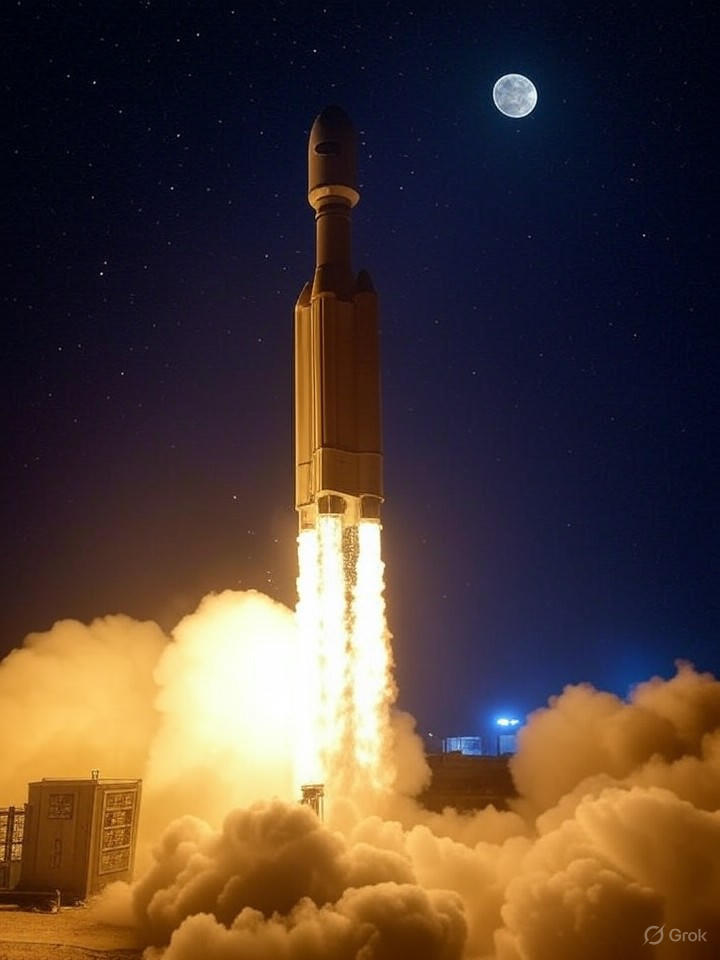In a significant development for the space sector, artificial intelligence (AI) is being acknowledged as a game-changing force, driving efficiencies and innovations across various space operations. During a recent summit in Seattle, industry leaders, including executives from companies such as Blue Origin and SpaceX, discussed how AI is enhancing activities from satellite management to deep-space exploration.
Participants highlighted that machine learning algorithms are now optimizing rocket trajectories in real time, achieving reductions in fuel consumption by as much as 15% and lowering mission risks. This advancement represents a transformative shift rather than mere incremental improvements in space endeavors.
Enhancing Satellite Management and Autonomous Systems
AI is also being employed to predict satellite failures before they occur. By leveraging vast datasets from orbital sensors, these predictive analytics can significantly extend the operational lifespan of satellite constellations like Starlink, potentially saving billions in replacement costs. As space missions venture further from Earth, the need for self-sufficient spacecraft is becoming increasingly vital. AI is stepping in to manage complex decision-making processes without the need for constant human oversight.
Moreover, AI’s impact extends to data processing, with NASA utilizing neural networks to analyze terabytes of cosmic data. This capability allows for the identification of patterns that human analysts may overlook, crucial for missions such as the James Webb Space Telescope. AI algorithms are enhancing image clarity and improving the detection of exoplanets, demonstrating the technology’s potential for scientific breakthroughs.
Industry insiders emphasize that private firms are at the forefront of these advancements. A Lockheed Martin report on trends for 2025 underscores the integration of AI into advanced communications, which facilitates seamless coordination between ground stations and lunar landers. This is particularly relevant for future human exploration missions, where AI could autonomously manage life-support systems during extended stays on the Moon.
Addressing Challenges and Ethical Dilemmas
Despite the promising advancements, the integration of AI in space exploration introduces challenges such as data security and algorithmic bias. These concerns have led to calls for robust regulatory frameworks to ensure the safe deployment of AI technologies. Looking to the future, the convergence of AI with quantum computing is set to unlock new opportunities. A McKinsey technology trends outlook for 2025 suggests that hybrid AI-quantum systems will allow for highly accurate simulations of asteroid mining, providing sustainable alternatives to traditional mining industries on Earth.
The surge of investment in AI-focused space ventures is expected to fuel exponential growth in the sector. Analysts note that strategic partnerships will be essential for navigating geopolitical tensions and supply chain vulnerabilities. The European Space Agency is particularly focused on fostering global collaboration, with initiatives aimed at standardizing AI protocols for international missions. In the United States, policy discussions are intensifying regarding AI’s role in national security, especially in countering adversarial satellite activities.
As 2025 approaches, the space industry’s growing reliance on AI indicates a significant shift toward intelligent, adaptive systems. The Seattle summit highlighted the importance of balancing innovation with oversight to fully harness AI’s potential while mitigating unintended consequences. This intersection of technology and exploration is poised to redefine humanity’s reach into the cosmos, paving the way for economic growth and groundbreaking scientific discoveries.





































































